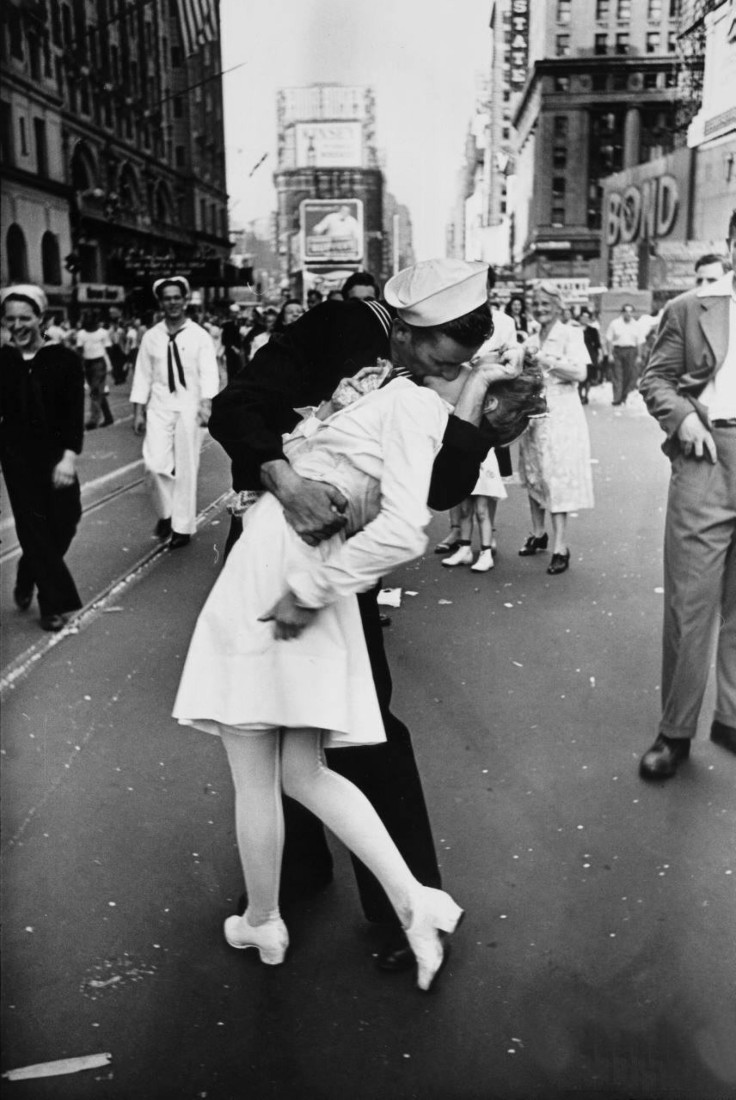A Costly Kiss: Indian Court Upholds Prison Term For Young Man Who Planted Unwanted Smooch On Woman

The Supreme Court of India has upheld a six-month prison sentence that was lodged 18 years ago against a young man who forcibly kissed a young woman on a public street in the Malda district of West Bengal. “With the social condition prevailing in the society, the modesty of a woman has to be strongly guarded,” the court said in its decision. “If any person uses criminal force upon any woman with the intention or knowledge that the woman’s modesty will be outraged, he is to be punished.”
The Calcutta Telegraph reported that the court rejected an appeal by the defendant, an amorous Romeo named Ajahar Ali, that he should not have been punished since he was a minor at the time of the costly kiss. The court, led by Justices B.S. Chauhan and S.A. Bobde, countered that Ali received a lenient sentence (six months), when, under the terms of the Juvenile Justice Act, he could have gotten up to three years in jail.
Ali, now in his 30s, saw his bizarre story unravel in November 1995 when the “victim,” a girl of about 16, complained to local police that, while going to school with other friends, Ali grabbed her by the hair and planted an unwanted kiss on her, resulting in a cut lip and some bleeding. However, for unclear reasons, the case did not come to court until May 2012 (after more than 17 years), when a local judge in Malda convicted Ali and handed him a six-month term.
Ali’s attorney, S.C. Ghosh, responded that too much time has passed since the offense occurred and that his client should be pardoned. But the highest court in the land rejected any pleas for clemency, charging that Ali had “committed a heinous crime.” Ali now has four weeks to surrender to the authorities and serve his prison sentence.
Under the Indian Penal Code, “outraging the modesty of a woman” is considered a rather serious crime. “The ultimate test for determining whether modesty has been outraged is whether the action of the offender as such can be perceived as one which is capable of lowering the sense of decency of a woman,” said Justices Chauhan and Bobde.
The strange case of Ajahar Ali reflects some of the hypocrisies, double standards and frustrating complexities of Indian society and its legal system. In a nation where rape (a far worse crime than forcible kissing) is epidemic, it seems odd that a court would sentence an otherwise law-abiding man to jail for an unwanted kiss that occurred almost two decades ago.
However, in India, and particular in Bengal where the forbidden kiss took place, public demonstrations of affection is strictly banned by custom as either in poor taste or an outright affront to traditional conventions. What Ajahar Ali did was even worse, since the girl he kissed did not even want to be kissed.
In recent years, as India has prospered and created a huge new class of westernized, middle-class urbanites, old-fashioned rules in the books has led to couples being arrested for kissing, or even holding hands, in public. The Indian media salivated when, a few years ago, the American actor Richard Gere kissed Bollywood actress Shilpa Shetty in a public function in Mumbai -- some hard-core Hindus demanded Gere’s arrest on “obscenity” charges, while some even wanted him killed.
Shetty defended Gere. "It was not so obscene," Shetty told Indian media. "This was not such a big thing for people to over-react in such a manner. I understand people's sentiments, but I don't want a foreigner to take bad memories from here. I understand this is his [Gere’s] culture, not ours.” Not even South African statesman Nelson Mandela was spared condemnation when he planted a kiss on actress Shabana Azmi.
Bollywood, which partially eased restrictions on kissing scenes in the 2000s, remains uneasy about showing “too much” physical affection -- even between lovers on the silver screen. "I have pledged that in any of my forthcoming films I will not give a lip kiss," an actress named Udita Goswami once told an Indian newspaper. "I am not comfortable doing that. I belong to a traditional family and my values do not allow me to indulge in such acts."
A travel guide called Culture-4-travel.com explicitly warns westerners when visiting India: “Walking down the street, you should not show public affection even to your loved ones. As a traditional country, India does not welcome PDA [public displays of affection]. Kissing and hugging are out of the question. Don't be surprise that people will literally stare at you with disapproving eyes.”
Some conservative Indians believe public kissing represent the vulgar aspects swamping Indian culture as the nation’s prosperity grows. Even some Indians who live in the West oppose public kissing. An Indian named Samir Mody living in the U.K. wrote to BBC: “The issue is not kissing. The issue is kissing in public. Indians prefer to practice their demonstrations of affection within the confines of their own privacy. I do not see why the public needs to endure the sight of two people exchanging saliva."
Another Indian named Praveen in Canada commented: “Kissing in public considered as uncomfortable to others in India not in private. Because we are not used to that, at least for centuries.”
© Copyright IBTimes 2024. All rights reserved.



















